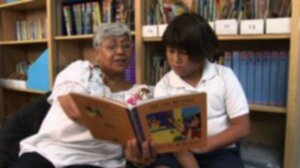Children who are being raised not by their own biological parents, but by grandparents who have taken them in for a wide array of heartbreaking and troubling reasons, come from households as disparate and unique as the neighborhoods and ethnic groups in which they live. It’s a trend that some experts believe will only continue to rise in light of the recent increases of incarceration, drug addiction, and an economy that has shown an uneven recovery throughout the country. The most recent numbers gathered just last year show that 2.7 million seniors are raising their grandchildren as if they were their own, with 20% of these families living below the poverty line. These figures represent a 7% increase since 2009, and the trend isn’t only about tragic circumstance.

For Latinos and other Hispanic immigrants, the concerns over incarceration, addiction, and economy are also exacerbated by another component that threatens the well-being of the family infrastructure – deportation. Immigration status has lead to a rise in the number of grandparents over the age of 55 who are left caring for their grandchildren due to their biological parents being sent out of the country. But these situations present the added potential obstacle of raising grandchildren without any tangible legal rights. Many grandparents are also undocumented, and they don’t attempt any sort of legal recourse toward custody because they are afraid it will put them in the cross-hairs of the federal government. So these relationships can be tenuous at best, putting at-risk children in more peril of being separated from their families in times of domestic crisis.
Family is the most important thing in our lives, especially to children who are too young to comprehend anything other than being with the people they love and with whom they’ve forged a bond. A stable home is the foundation for success in school. For children living with grandparents, they are already facing an uphill climb, not because their grandparents don’t love them, but because so many of these households have endured hardship to place the grandparents in these roles.
The Latino Family Literacy Project is not only a great program for parents but also for grandparents who are custodial parents.
